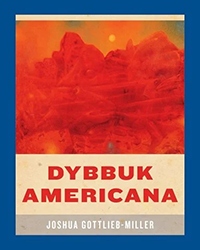About Andrea Cohen’s poems, Christian Wiman has said: “One is caught off guard by their cumulative force. This is work of great and sustained attention, true intelligence, and soul.” In The Sorrow Apartments, Cohen’s eighth collection, those signature gifts are front and center, along with sly humor, relentless economy, and the hairpin curves of gut-punch wisdom. How quickly Cohen takes us so far:
Bunker
What would I
think, coming
up after
my world
had evaporated?
I’d wish
I were water.
The Sorrow Apartments is home to spare and uncanny lyricism – – as well as leaping narratives of mystery and loss and wonder. These poems race at once into the past and the possible. And yet, instead of holding things up to the light for a better view, Cohen lifts them to the dark and light, as in “Acapulco,” where an unlikely companion points out, “as men tend to, / the stars comprising Orion’s belt — / as if it were the lustrous sparks and not / the leveling dark that connects us.” For a poet who has been called unfashionable from the get-go, unfashionable never looked so good.





